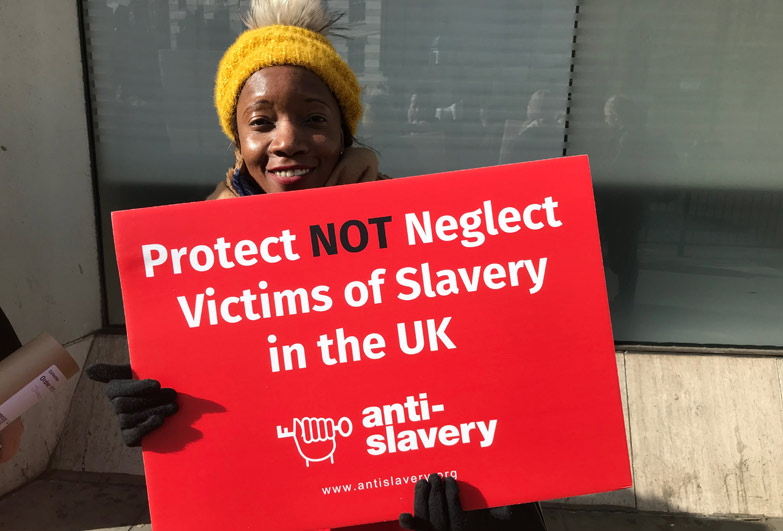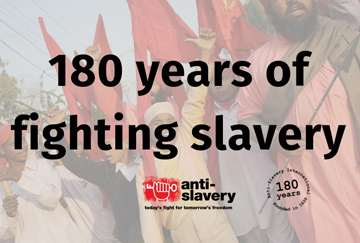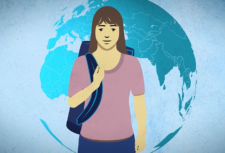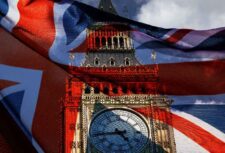Disclaimer: This article is more than 4 years old, and may not include the most up-to-date information or statistics. Please verify information with more recent sources as needed, and if you have any questions contact our Press Office.
UK Programme Manager Kate Roberts on a breakthrough case forcing the Government to drop the 45 days limit of support for survivors.

2 July 2019
Anti-Slavery, together with a strong coalition of organisations from the anti-slavery sector, have long argued that each survivor of modern slavery needs comprehensive long-term support in order to rebuild their lives. Until now support has ended soon after someone is identified as trafficked.
So this news is big: the UK government has conceded that victims of trafficking should receive long-term support that reflects their individual circumstances, rather than cutting their support off before they are ready, and has committed to building a system that provides specialist support which is available and accessible in practice.
LP* was trafficked for sexual exploitation from Albania to the UK. She now has a young daughter to care for and is trying to rebuild her life. NN* was trafficked from Vietnam to the UK and locked in cannabis cultivation. Abused by his traffickers, he struggles to overcome the trauma he experienced. Both were recognised as victims of human trafficking by the Home Office. However, this decision was accompanied by fear for their future as they would lose their specialist support only 45 days later.
People who have been trafficked in the UK are referred to a system called the National Referral Mechanism (NRM). Through this system the Home Office makes decisions recognising people as victims and refers them to government funded specialist support. Historically, support for people identified as victims ended two weeks after they had received a positive decision. And whilst in February this year, this timeframe was extended to 45 days, it remained clear that the majority of confirmed victims – some of who had been in slavery for years – were not in a position to move on from specialist support within such a short period of time.
“Police have described referring the same person back into the NRM three times as they are unable to cope without support and end up being exploited again”
Together with their legal representative, Duncan Lewis, LP and NN argued that the recovery process for victims of trafficking doesn’t end when they receive recognition. Furthermore, they successfully argued that ending their support on a cliff-edge was unlawful and in breach of the Council of Europe Convention Against Trafficking in Human Beings. The Home Office has now conceded they were right.
The case built on years of campaigning, not least by the Anti-Trafficking Monitoring Group, a coalition of UK charities coordinated by Anti-Slavery International, which supported this case by submitting evidence. Activists have long pointed out the irony of support ending soon after someone is confirmed as a victim, effectively deserting them. Survivors have spoken of the betrayal of having been found to have been a victim and then abandoned when their support is cut off, regardless of their situation, leaving them vulnerable to being exploited again. Police have described referring the same person back into the NRM three times as they are unable to cope and end up being exploited again.
The Home Office has committed to developing a needs-based system of support for survivors. This commitment is welcome and should build on the government’s important commitment to adopt the Slavery and Trafficking Survivor Care Standards – a set of minimum standards of support for each victim. However, much remains to be done to ensure that support which meets minimum standards and responds to the needs of each individual is implemented in practice.
 We are 180 years old…
We are 180 years old…
But we’re not celebrating, we’re working harder than ever against slavery across the world.
To ensure that survivors receive the support to which they are entitled to it is important to look at how the system works from the start. For example, only 16% of the number of people referred into the NRM in 2018 received a positive decision. But a negative decision does not necessarily mean that someone wasn’t trafficked. It can simply mean that there is not enough evidence to make a positive decision. Yet those not recognised as trafficked generally receive no support. We need to make sure that all those in the NRM have a proper assessment of their cases and support which responds to their individual needs, even if they are not able to produce comprehensive evidence to meet the slavery threshold.
Victims must also be provided with easier access to all relevant services, from healthcare to counselling, accommodation, financial support, legal aid and compensation. At the moment accessing many of these entitlements is primarily a matter of luck, dependent on local availability and capacity.
Finally, allowing victims a period of time during which they know they can remain in the UK with access to safety and security is vital to helping them recover and move on from their experience, as well as to support cooperation with the police. Survivors should be able to access entitlements to health, education and compensation and, if they are ready, to enter into decent work, so that their most recent experience is not one of exploitation. Currently, of the people who received a positive decision in 2018, only 12% also received a residence permit to remain in the UK, usually for a period of 12-30 months.
These are not big asks. The overall numbers are small. No one can ‘self-refer’ to the NRM, they have to be referred in by a professional who identified them as a possible victim of trafficking so claims that the system might be used by people who have not been trafficked are not credible.
The Government’s commitment to develop comprehensive support that is responsive to the needs of individual victims is crucial if we are to keep survivors safe and help rebuild their lives. As one survivor responded when I told her of the win “I hope this will happen in reality, not just on paper”.
To ensure that people like LP and NN no longer face the cliff edge as their support ends, the Government’s response needs to work in strong partnership, with the needs and voices of survivors at the centre.
*names concealed to protect identity.
 We are 180 years old…
We are 180 years old…




